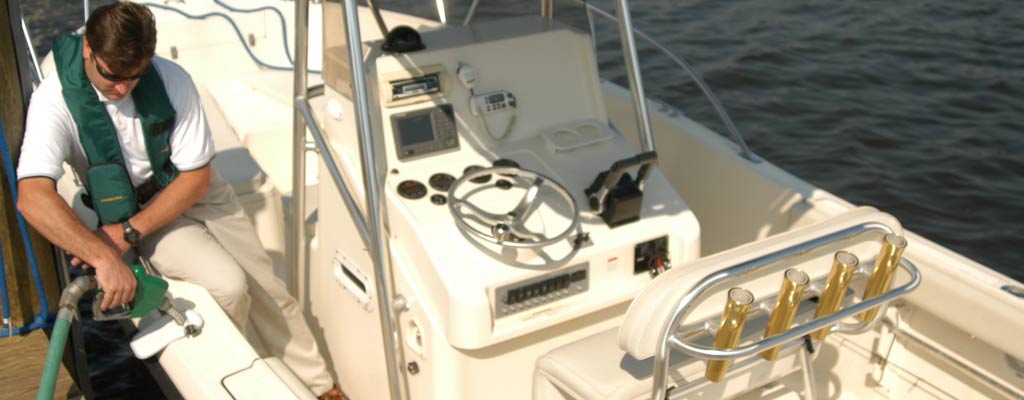Fueling Basics
Proper fueling procedures are important to keeping oil and gas out of our waterways.
Oil and fuel in the water can impact bottom sediment, marine life and shore birds. You are responsible for any environmental damage caused by your fuel spill. So... preventing spills will be beneficial for you and the boating environment!
The Law
Accidental or not, under Federal law (the Oil Pollution Act and the Clean Water Act), it is illegal to discharge any amount of fuel, oil or other petroleum product into the waters of the United States.
By law, any oil or fuel spill that leaves a sheen on the water must be reported to the U.S. Coast Guard National Response Center by calling 1-800-424-8802. Many states require you to contact them as well in case of a spill so make sure you know what agency to contact in your state.
It is also against the law to use detergents, soaps, emulsifying agents or other chemicals to disperse a spill. These products cause the petroleum to sink, creating even greater environmental damage. While it may only seem like a small amount, it can permanently contaminate bottom sediments. Anyone who deliberately applies soap to disperse or hide a sheen is subject to criminal penalties and high fines.
To increase awareness of the issue, boats 26" and longer are required to post an oil placard (available at marine supply stores) near the engine.
Why Fueling a Boat is Different:
While fueling a boat is a relatively common activity, it can be tricky. This video will help explain the differences between boat and car fuel systems and why extra care must be taken with fueling boats.

